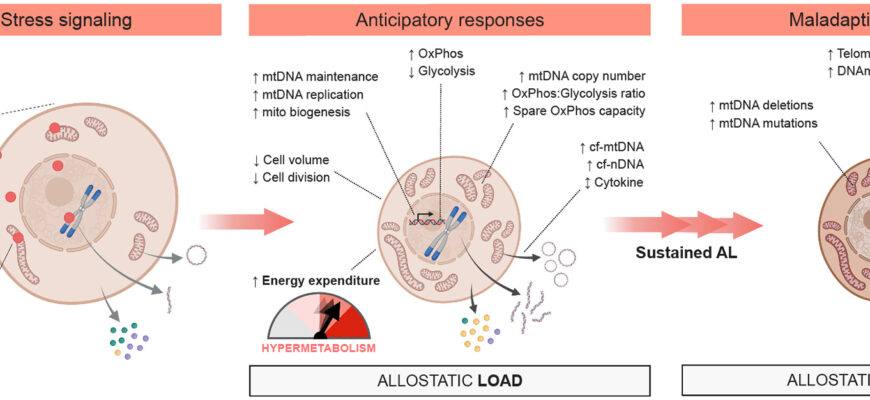We often hear that a strong social circle is vital for a long and healthy life. But what if some of those very connections, seemingly innocuous or even well-intentioned, are quietly accelerating your biological clock? Recent scientific findings suggest that the subtle stresses of certain relationships are not just a nuisance; they are actively impacting your cellular health and potentially shortening your lifespan.
The Hidden Cost of Social Friction
It`s a familiar scenario: a conversation leaves you feeling drained, a family gathering creates lingering tension, or a friend`s constant negativity chips away at your peace. While we might dismiss these as mere emotional inconveniences, a groundbreaking study from Indiana University, with its findings available on the preprint server bioRxiv, paints a far more serious picture. Researchers delved into the intricate world of human relationships and their biological consequences, unearthing a compelling link between social stress and the pace of biological aging.
The study meticulously analyzed DNA methylation patterns—molecular tags on our genes that influence how they function—alongside detailed maps of hundreds of individuals` social connections. The objective was to see if the quality of social interactions left an indelible mark on our very genetic machinery.
“Hasslers” and the Ambivalence Paradox
The findings were striking. On average, the researchers found that approximately one in four individuals within a person`s social circle was identified as a “hassler”—someone consistently perceived as a source of stress or tension. Alarmingly, nearly 60 percent of study participants reported having at least one such individual in their lives.
The correlation was clear: the greater the proportion of these “stress-inducing” contacts in a person`s social network, the faster their biological aging. The most pronounced effects were observed in individuals whose social networks comprised more than 50 percent of these difficult relationships. It appears that chronic exposure to such social friction exacts a measurable toll on our bodies.
However, the most insidious discovery concerned ambivalent relationships. These are connections where support and stress are intertwined—think of a friend who is sometimes helpful but often critical, or a family member who offers assistance while simultaneously creating drama. Counterintuitively, these relationships, rather than purely negative ones, showed the strongest association with accelerated biological aging. They were also linked to a cascade of other adverse health outcomes, including:
- Increased systemic inflammation
- A higher prevalence of chronic diseases
- Elevated levels of anxiety and depression
- Deterioration in overall physical condition
It seems the unpredictability and mixed signals of ambivalent relationships create a unique form of chronic stress, leaving the body in a constant state of low-level alert.
The Biological Mechanism: Stress, Inflammation, and Cellular Wear
How do seemingly intangible social dynamics translate into tangible biological aging? The answer lies in the body`s stress response. When we encounter stress, whether from a deadline or a difficult conversation, our bodies release hormones like cortisol. While short bursts of stress can be adaptive, chronic exposure keeps the body in a prolonged state of “fight or flight.”
This sustained activation has profound effects. It can disrupt DNA repair mechanisms, shorten telomeres (protective caps on our chromosomes that are indicators of cellular aging), and promote chronic inflammation. Inflammation, often called the “silent killer,” is a key driver of many age-related diseases, from cardiovascular issues to neurodegenerative disorders.
“Toxic relationships, particularly those marked by ambivalence, act as a persistent source of chronic stress. Our findings suggest that addressing these social stressors is not just about emotional well-being, but a critical component of healthy aging and disease prevention.”
Implications for Health and Longevity
This research underscores a crucial, yet often overlooked, dimension of public health: the quality of our social environments. While we diligently monitor diet, exercise, and sleep, the invisible threads of our relationships might be equally, if not more, impactful on our long-term health. For individuals, this means cultivating a heightened awareness of who and what truly nourishes their spirit versus what depletes it.
The study`s call for medical and social policy attention highlights the broader societal implications. Could interventions aimed at fostering healthier relationship dynamics, or even strategies for managing exposure to unavoidable social stressors, become a standard part of preventive healthcare? It`s a provocative thought, suggesting that “social hygiene” might one day be as recognized as personal hygiene.
Shaping Your Biological Future
The takeaway is clear: your social interactions are not just influencing your mood; they are actively shaping your biological future. While it may be challenging to completely sever ties with every “hassler” or ambivalent connection, recognizing their impact is the first step. Consciously managing your exposure, setting boundaries, and actively cultivating relationships that offer genuine, unmixed support can be powerful strategies in the pursuit of healthier, slower aging.
Perhaps it`s time to audit our social circles with the same rigor we apply to our dietary choices. After all, the cost of an unhealthy relationship might be far greater than we ever imagined—a few precious years off our biological clock.
Note: This article is based on research published on the preprint server bioRxiv. Research available on bioRxiv has not yet been peer-reviewed and should not be regarded as conclusive, guide clinical practice, or be reported as established information.








